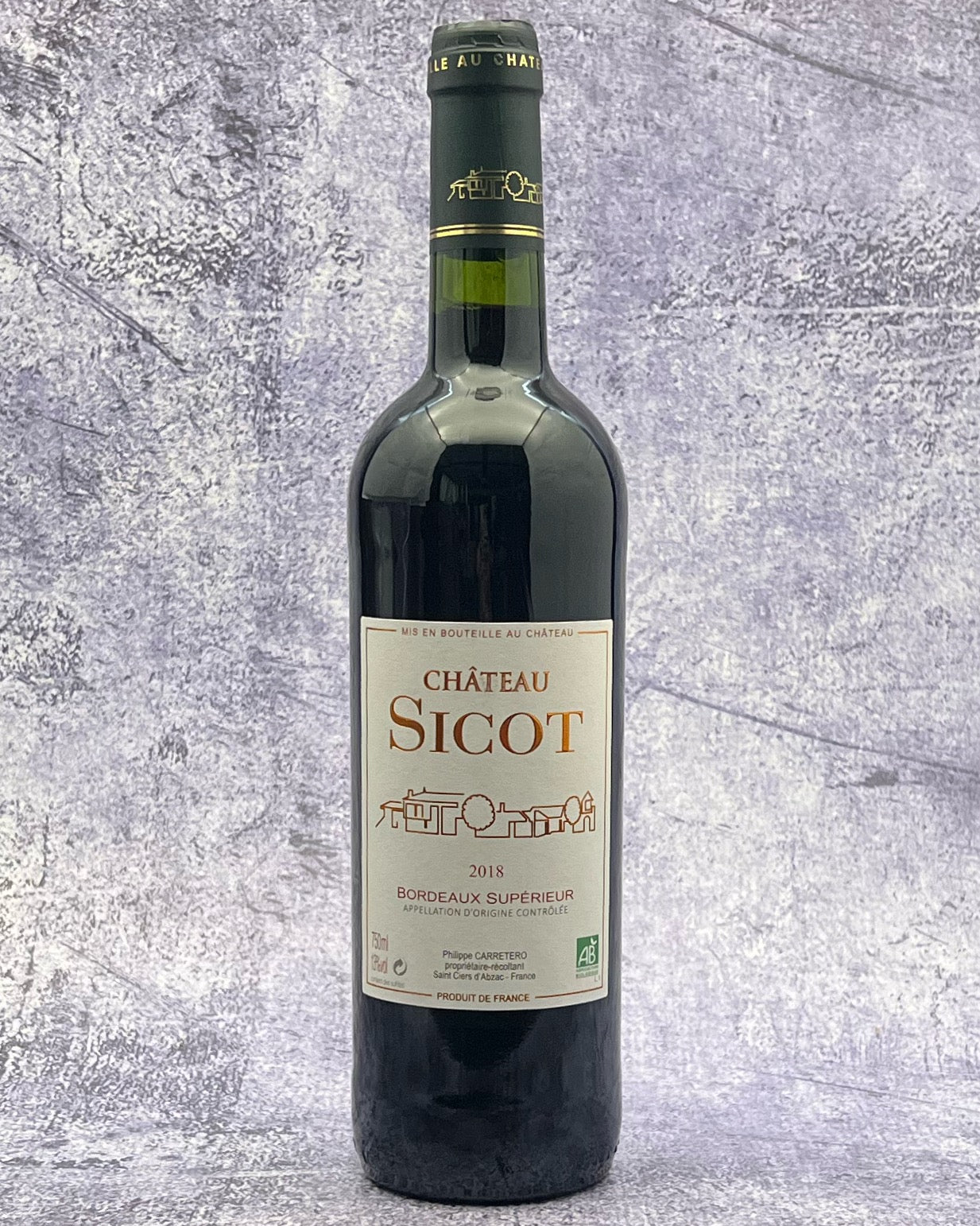From: Bordeaux, France
Varietal: Merlot, Cabernet Sauvignon
Taste: Taste: It should be mentioned that 2018 was an excellent vintage (year) for Bordeaux, and this wine exemplifies the friendliness of the vintage exceedingly well. As soon as the wine hits the glass, you’ll find that it exudes amicable buoyancy with its red currant, cassis, and kirsch fruit, supple structure, and smooth tannins. You’ll also find notes of clove, sweet tobacco, and supple, worn leather in that glass that seamlessly transitions to the palate. Here, you’ll find added delight in the parallel nature of this wine: fruit on the nose, also tasted on the palate. As the wine opens, those fruit notes become buoyed by flavors and textures of plum skin and mushroom/umami.
Pairing: Everyday Bordeaux reds are some of the best wines to pair with a range of dishes from everything from carnitas tacos to beef stew to homemade burgers and BBQ. For today’s pairing, we’re going to share a recipe by Alexa Weibel for Mushroom Pot Pie. This recipe takes about 1.5 hours (though to be fair, it takes us longer) and is one of those awesome, versatile dishes that you can adjust all year long. Some other options include: Pair with charcuterie, especially paté and terrines. Cold roast beef. Cold game pies. Simple grilled meat like steak frites, Mediterranean fare, or sausage with chips, haricot beans, or lentils. Shepherd’s pie and its French equivalent, hachis parmentier*. Goat and sheep cheeses, mild brie, and camembert.
About. A humble, everyday Bordeaux rouge from a tiny, ten-person team winery with a 50-year history. The head of their family business, Philippe Carretero, engineer—oenologist, has led this team for about 30 of the 50 years Chateau Sicot has existed. Compared to many of the wineries around the world and even in Bordeaux, this Chateau is small. It may be because of their size that they’ve managed to successfully (& quickly) commit and convert their vineyards over to organic farming, achieving ECOCERT certification in 2009.
The process of achieving an organic certification is time-consuming and expensive, but the benefits far outweigh the costs. They’ve seen the life of their soils strengthen, preventing erosion & the deterioration of microorganisms vital to keeping the ground healthy. Their vines have become healthier and more resistant to disease as well, all resulting in better fruit, which yields better wine!

